Once upon a time, Peter Finch won an Oscar for telling us to go to our window, open it, and yell, “We’re mad as hell and we’re not going to take this anymore!” Now thousands and thousands of consumers are doing just that, but instead of yelling out their windows, they’re yelling at the Federal Reserve in the form of a record breaking number of public comments about some proposed credit card reforms. Not as sexy as yelling like a madman, but far, far more effective.
regulation

California Declares Free Market Broken, Recommends Price Controls For Phone Services
“There is no indication of any change in the near future regarding the current state of competition. Market forces have not yet met the challenge of controlling price increases.”

Risk-Based Pricing Is A Myth
Credit card companies need to penalize bad behavior with outrageous fees to keep credit affordable for the rest of us, right? Yeah, not so much. Credit Slips blogger and Georgetown Law Professor Adam Levitin argues that risk-based pricing is a myth that credit card companies exploit to escape well-deserved government regulation.

Patients Of Botched LASIK Surgery Urge FDA To Step In
Our beloved fatherteacher Ben Popken seems just fine with his newly lasered eyes, but not everyone sees such great results, says Reuters: “Blurred vision, dry eyes, glare and double-vision have led to depression and in some cases suicide, several patients told a U.S. Food and Drug Administration advisory panel.” These patients want the FDA to take a more active role in regulating the LASIK industry (currently the FDA regulates the equipment but not the people who use it).

New Dairy Law In Ohio Designed To Strangle "rBGH-free" Labeling
Monsanto failed to get the FDA to ban “rBGH-free” labeling nationally, and it’s had mixed success at the state level. Now the company and its gang of ethics-free dairy farmers (those are the ones who use rBGH to increase profits, but want that truth kept out of the marketplace because it’s unpopular with consumers) have scored a significant win in Ohio this week. Yesterday the state passed a law that forces extra, rBGH-friendly fine print on every milk label that promotes itself as “rBGH-free.” The goal of the ruling: to require expensive label redesigns on competitors, and to crowd the label with unnecessary fine print in order to dilute the marketing power of the “rBGH-free” label.
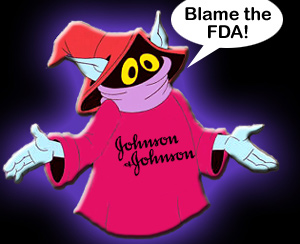
Pre-Emption Doctrine Would Make FDA Responsible For All Drug Problems, Shield Big Pharma From Lawsuits
Johnson & Johnson is waiting to hear whether or not a judge in Ohio will allow any lawsuits over its Ortho birth control patch to move forward, and the New York Times says lawyers on both sides think there’s a good chance he may find in the company’s favor based on the doctrine of pre-emption. The argument goes that it’s the FDA’s responsibility to monitor the safety and labeling of drugs that go to market, and therefore if something goes wrong, it’s the agency’s fault and not the pharmaceutical company’s.

ISPs Are Maniacal Stalkers Who Read Your Email And Watch You Surf The Web
Internet service providers are actively tracking 100,000 users, reading every email they send and every website they visit, according to the Washington Post. The report coincides with a damning Associated Press investigation of ISP contracts which finds that they reserve broad rights to read essentially anything you view on the internet without any intervening supervision or regulation.

Treasury Secretary Calls For Supercharged Fed, Streamlined Regulatory System
Treasury Secretary Henry Paulson wants to consolidate the nation’s financial regulators into a tripartite gang that can save the economy from distress and doom. The plan to give the Federal Reserve broad new regulatory powers and streamline the regulatory community has been in the works since last March, before the start of the subprime meltdown. Paulson is worried that the U.S. markets are no longer competitive with maturing world markets, some of which aren’t hampered by nuisances like regulation. After the jump we’ll explain the consumer impact of the plan and introduce you to your three new regulators.
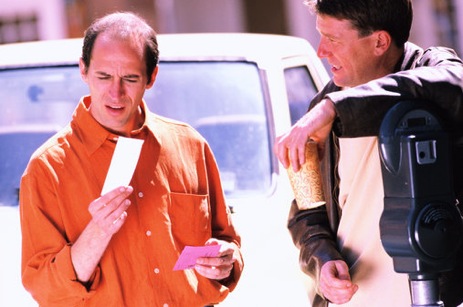
The Vast Majority Of Philadelphia Parking Tickets May Be Invalid
A CBS investigation has revealed that parking tickets stemming from 85% of the parking meters in Philadelphia are invalid. Pennsylvania law requires inspectors to certify each parking meter for accuracy once every three years, but the single inspector working for Philly’s Licenses and Inspections Department, the city agency in change of certification, has visited less than 15% of all parking meters—but he has found the time to certify some meters 8 times while others go completely unchecked. As a result, thousands of parking tickets are invalid under state law.

Pickled Mouse Foot Is A "Special Additive," Enjoy!
A woman in Slovenia who found a preserved mouse foot in her jar of pickles complained to the Health Ministry. A ministry official wrote back with a summary of how mice parts end up in factory-made food products, and then concluded, “A mice-foot therefore could be classified as a special additive to the pickles.”
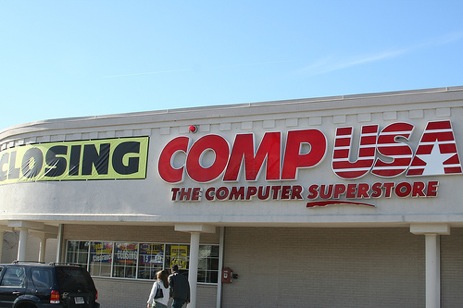
CompUSA Refuses To Accept Cash
A CompUSA cashier summoned her manager and a security guard when Bud tried to pay for his purchases with cash. The promise of 40% discounts drew Bud to the Boisie, Idaho store, but he settled for a 10% discount on an iMac and several accessories.
I start counting out hundred dollar bills and the clerk goes nuts! “Sir, we don’t accept cash for this kind of purchase! You must use a credit card!” she says at the top of her lungs. (I see her also hit a button on the phone at the same time.)

Make Money At Home Stuffing Supplement Capsules—No Anything Required
This personal testimony about health supplements from winstonthorne on today’s earlier post is too good—and disturbing—to leave buried in comments:One of my friends actually stuffs capsules for a living for a company making an herbal “sexual stimulant” – she literally sits there on her…

Do Presidential Candidates Care About Consumer Issues?
Most Presidential candidates could not care less about consumer protection, but several have taken a stand on one of the sexier consumer issues: toy safety. Let’s break down where they stand.

CPSC Head Nancy Nord Officially Thanks Congress For Consumer Product Safety Vote
Last week, the House of Representatives voted 407-to-0 to approve a consumer product safety bill that greatly increases the scope and power of the Consumer Product Safety Commission (CPSC).
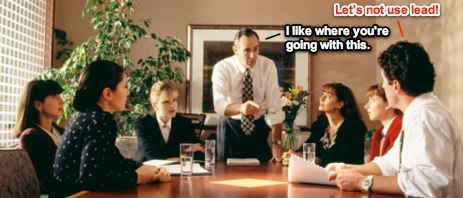
Toy Industry Association Will Announce New Safety Plan In February
Well we’re glad that’s taken care of. Wait… the Toy Industry Association is a trade group, not a federal agency! At any rate, on February 1st the Toy Industry Association, a 500-member strong group, will “release a draft of tough new safety rules, which include a plan to require manufacturers to test toys for hazardous chemicals and defective designs.” According to CNN, the group is drafting the 3-point plan with at least the awareness, if not the help, of the CPSC, and it hopes to have the plan formally certified as the CPSC’s “new standard for toy safety.”
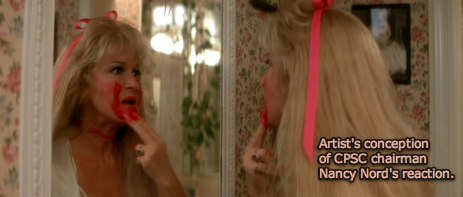
House Votes 407-0 To Ban Lead In Toys And Increase CPSC's Funding
Today the House of Representatives unanimously approved H.R. 4040, the Consumer Product Safety Commission Modernization Act of 2007, that virtually eliminates lead from children’s toys (down to 100 parts per million by 2012) and increases the funding of the CPSC. A Senate committee approved its own version of an anti-lead/pro-CPSC bill in October, but it hasn’t reached a floor vote yet—so sometime (early?) next year a final bill should be hammered out to send to the White House. Unless, of course, the lead toy furor disappears after Christmas.

FCC Says Comcast Can't Buy More Cable Companies, But Murdoch Can Own Everything
Today, in an attempt to anger fans of both regulation and deregulation, the FCC approved two new rules. The first one restricts cable companies to owning no more than 30% of a market; the second one “gives owners of newspapers more leeway to buy radio and television stations in the largest cities.” One nice thing about the first rule is that Comcast can’t buy any more cable companies. One bad thing about the second one is that it will likely mean that Rupert Murdoch will win “permanent waivers to control two television stations in New York, as well as The New York Post and The Wall Street Journal.”



